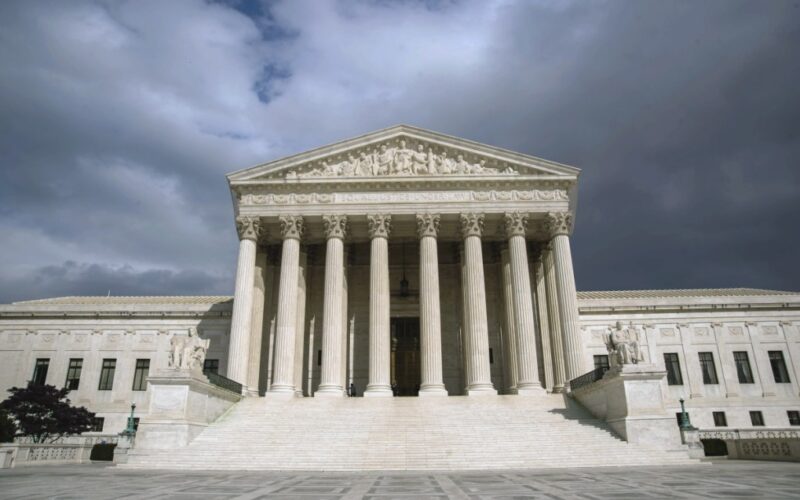The U.S. Supreme Court needs to make completely clear that the first sentence of the 14th Amendment, “All persons born or naturalized in the United States, and subject to the jurisdiction thereof, are citizens of the United States and of the State wherein they reside” means exactly what it says. Doing so will stop the Trump administration’s awful effort to end birthright citizenship for kids born to undocumented immigrants or temporary legal residents.
The case before the justices today first has to address the power of local federal trial court judges to issue nationwide injunctions, affecting policy across the country.
There are perhaps some legitimate reasons to be concerned about single judges seizing control of areas of policy — just look at the right wing’s favorite judge, Matthew Kacsmaryk of Texas, a go-to man for advancing conservative ideology on everything from abortion to immigration — but this case in particular demonstrates why there is a need for judges to have this sweeping power.
It would be ridiculous for a judge to be able to order that people born in a certain part of the country must be granted citizenship under the 14th Amendment but have that limited only to those born in that jurisdiction. It doesn’t take much imagination to understand the absurd implications of having a person be a U.S. citizen in one state but not the other.
As the larger citizenship question, it should be open-and-shut. Only a handful of fringe or reflexively contrarian lawyers and professors have taken the position that there is any debate to be had on the breadth of the amendment’s birthright provision.
We will note once again that the Supreme Court has of course already ruled on this; it did so all the way back in 1898, when the San Francisco-born Wong Kim Ark sued over the government‘s attempt to refuse him reentry after a period spent away in China.
The White House and it supporters argue that the jurisdictional requirement excludes certain people, and they’re right that it does: it has long been understood to not apply to, for example, the children of invading soldiers or foreign diplomats, who are not, strictly speaking, subject to U.S. jurisdiction in the same way that others are.
These limited carve-outs, and only these carve-outs, have been part of the understanding of the 14th Amendment since the beginning; otherwise the plain meaning of the amendment’s language is clear, and there is nothing in either the historical record or anyone’s understanding of the law to suggest Trump’s interpretation is valid.
The amendment was ratified in 1868, seven years before the Page Act of 1875 became the nation’s first restrictive immigration law, largely banning the entry of Chinese women. The notion that the amendment’s framers could have meant in their drafting to exclude the as-yet nonexistent concept of “undocumented immigrants” — or even temporary visa holders, more than five decades before visas were formally established — is absolutely farcical.
The administration also has yet to present any vision where the individuals at issue are in any way not subject to its jurisdiction. In fact, it has simultaneously been arguing in court that it has far greater jurisdiction and authority to detain and remove immigrants than any modern presidential administration. It cannot have it both ways.








